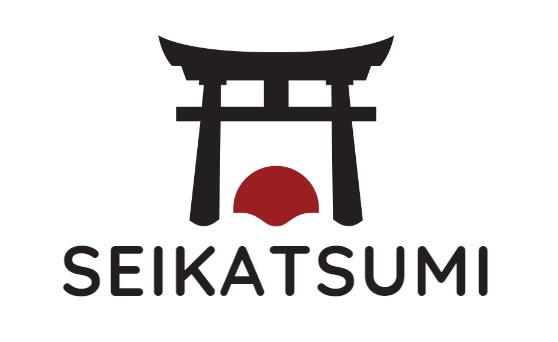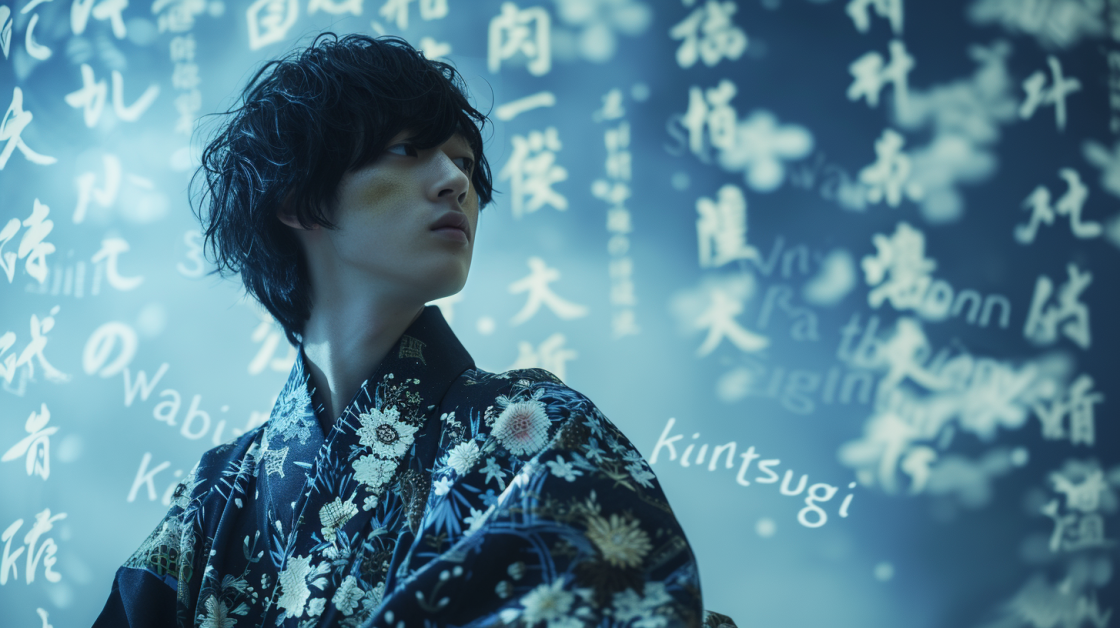Are you captivated by the profound and meaningful words unique to the Japanese language? You’re not alone!
I am deeply fascinated by how these words beautifully encapsulate complex ideas and emotions, which often can’t be directly translated into English.
This passion has led me to spend countless hours exploring these linguistic gems.
The depth they add to understanding Japanese culture and philosophy is truly remarkable, ranging from the subtle nuances of nature to the profound reflections on life.
Let’s uncover the beauty and depth these words hold! 😉
Philosophy of Japanese meaningful words
As I explore the Japanese language, I am struck by the depth and beauty of the words used to express complex emotions and ideas.
The Japanese have a rich tradition of philosophy, and this is reflected in their language.
Ikigai: A Reason for Being

In Japanese, “ikigai” (生き甲斐) means “a reason for being.” It is a concept that describes the intersection of one’s passion, mission, vocation, and profession.
Essentially, it is what gets you out of bed in the morning, the thing that gives your life meaning and purpose.
Having a strong ikigai is believed to be the key to a long and fulfilling life.
Wabi-Sabi: Beauty in Imperfection

“Wabi-sabi” (侘寂) is a central concept in Japanese aesthetics and philosophy. It is the idea that beauty can be found in imperfection and transience.
It is about accepting the natural cycle of growth and decay and finding beauty in the imperfect, incomplete, and impermanent.
It is a reminder to appreciate the simple things in life and to find joy in the present moment.
Kintsugi: Art of Repair

“Kintsugi” (金継ぎ) is the Japanese art of repairing broken pottery with gold lacquer. It is based on the idea that the cracks and flaws in an object are part of its history and should be celebrated rather than hidden.
By repairing the broken pieces with gold, the object is transformed into something even more beautiful than before. It is a powerful metaphor for the resilience of the human spirit and the beauty of imperfection.
As I delve deeper into the Japanese language, I am continually amazed by the depth and richness of its philosophy. These three concepts are just a small sample of the profound ideas that are woven into the fabric of the language.
They remind me to find meaning and purpose in my life, to appreciate the beauty in imperfection, and to embrace the challenges that come my way.
Emotions and Human Experience

As someone who is fascinated by the Japanese language and culture, I have always been drawn to the unique and meaningful words that exist within the language.
Hey you! Are you interested in more art? Then be sure to check out our top articles! You definitely can’t miss it!
Japanese Skull & Oni Mask Tattoos: 100+ Ideas You’ll Love 2024
Natsukashii: Nostalgia

One of the most beautiful and bittersweet Japanese words is “natsukashii.” This word describes the feeling of nostalgia or longing for something that is gone.
It is a complex emotion that can be triggered by a wide range of experiences, from the smell of a childhood home to the taste of a favorite food.
Natsukashii is a reminder that the past is always with us, and that our memories are an essential part of who we are.
Mono No Aware: Transience of Things
Another powerful Japanese word related to emotions is “mono no aware.” This phrase describes the bittersweet feeling of recognizing the impermanence of all things.
It is a reminder that everything in life is fleeting and that we should cherish the moments we have while we have them.
Mono no aware is often associated with the beauty of cherry blossoms, which bloom for only a short time each year before falling to the ground.
Ibasho: A Sense of Belonging
Finally, I want to explore the concept of “ibasho,” which refers to a sense of belonging or a place where one feels at home. This word is particularly meaningful in a culture like Japan, where the desire for harmony and belonging is deeply ingrained.
Ibasho can be a physical place, like a hometown or a favorite park, or it can be a community of people who share common values and experiences.
Regardless of its form, ibasho is a reminder that we all need a place where we feel accepted and valued.
Interpersonal Values
As someone who values meaningful connections with others, I find that Japanese culture has a lot to offer in terms of interpersonal values.
Here are some Japanese words that embody these values:
Omotenashi: Hospitality

Omotenashi is the Japanese quality of being thoughtful and considerate of others so that you can anticipate their needs and adjust your actions accordingly.
It arose in ancient times out of the tea ceremony, when the host took painstaking care to brew a beautiful cup of tea for their guests.
Today, omotenashi is still an important part of Japanese culture, and it can be seen in everything from the way that hotel staff greet their guests to the care that goes into preparing a meal.
Giri: Social Obligation
Giri is the sense of social obligation that one feels towards others. In Japan, there is a strong emphasis on the importance of fulfilling one’s duties and obligations towards others, whether they be family, friends, or colleagues.
This can manifest itself in many ways, such as the way that people go out of their way to help others, or the way that people are expected to put the needs of the group ahead of their own individual desires.
Hansei: Self-Reflection
Hansei is the practice of reflecting on one’s actions and taking responsibility for one’s mistakes. In Japan, there is a strong emphasis on the importance of humility and self-reflection.
This can be seen in the way that people apologize for even minor mistakes, or the way that people are quick to take responsibility for problems that arise.
By taking the time to reflect on one’s actions and learn from one’s mistakes, one can become a better person and build stronger relationships with others.
Nature and Seasonal Words

As someone who loves the beauty of nature, I find that the Japanese language has a multitude of words that describe the natural world with incredible accuracy and depth.
Here are a few of my favorite Japanese nature and seasonal words that evoke a sense of wonder and appreciation for the world around us:
Hanami: Flower Viewing
One of the most beloved traditions in Japan is hanami, or flower viewing. During the spring, people gather under cherry blossom trees to appreciate their beauty and enjoy a picnic with friends and family.
The word hanami literally means “flower viewing,” and it’s a wonderful reminder to take the time to appreciate the fleeting beauty of nature.
Komorebi: Sunlight Through Leaves

Have you ever been in a forest and seen the sunlight filtering through the leaves? In Japanese, this is known as komorebi.
It’s a beautiful and peaceful view that we can admire anywhere in the world, and Japan has a particular word for it!
The kanji for komorebi is 木漏れ日, which literally means “sunlight leaking through trees.”
Shinrinyoku: Forest Bathing
Shinrinyoku, or forest bathing, is a practice that involves spending time in nature to improve one’s physical and mental health. It’s a popular activity in Japan, where people go on walks or hikes in the forest to reduce stress and improve their overall well-being.
The word shinrinyoku literally means “taking in the forest atmosphere,” and it’s a great reminder to slow down and appreciate the healing power of nature.
These are just a few examples of the many beautiful nature and seasonal words in the Japanese language.
They remind us to appreciate the beauty of the natural world and take the time to connect with it on a deeper level.
Linguistic Nuances

As I dive deeper into the Japanese language, I am fascinated by the nuances and subtleties that exist within it.
Japanese is a language that is rich in meaning and depth, and it is no wonder that it has captured the hearts of so many people around the world.
Yuugen: Profound Mystery

Yuugen is a word that is difficult to define, but it is often translated as “profound mystery.” It is a word that is used to describe things that are beautiful and mysterious, and that evoke a sense of awe and wonder.
Yuugen is often associated with nature, and it is used to describe the beauty and mystery of the natural world.
One of the things that I love about Yuugen is that it captures the idea that there are some things in life that are beyond our understanding.
It reminds me that there is always more to discover and explore, and that there is beauty and wonder in the unknown.
Kokoro: Heart and Mind
Kokoro is another Japanese word that is difficult to define, but it is often translated as “heart and mind.”
It is a word that is used to describe the essence of a person, and it is often associated with emotions and feelings.
What I find particularly interesting about Kokoro is that it captures the idea that the heart and mind are not separate entities, but rather they are interconnected and interdependent.
In Western culture, we often think of the heart and mind as being separate, but in Japanese culture, they are seen as being intimately connected.
My personal favorite meaningful word!

In my view, the Japanese word “Ikigai” holds profound personal significance, resonating deeply with my philosophy of life.
To me, Ikigai represents the freedom of thought and the joy of living, embodying the concept of finding one’s purpose and passion in life. This meaningful word encourages a lifestyle where every action and decision aligns with what truly brings joy and fulfillment.
It’s not just about a career or hobby, but an all-encompassing approach to life that blends what we love, what we are good at, what the world needs, and what we can be rewarded for. Ikigai, in its essence, is a reminder to cherish and seek out those moments and activities that give life a deeper sense of meaning and satisfaction.
It inspires me to pursue a life where my actions are driven not just by necessity, but by a genuine love and enthusiasm for what I do, creating a harmonious balance between duty and desire.
In embracing Ikigai, I find a sense of liberation in my thoughts and actions, guiding me to a more joyful and contented existence.
Frequently Asked Questions
What is an example of a deeply meaningful Japanese word?
“Kintsugi” – the art of repairing broken pottery with gold, symbolizing beauty in imperfection.
Is there a Japanese word for life’s purpose?
“Ikigai” – refers to one’s reason for being or life’s purpose.
Are there unique Japanese words for natural phenomena?
Yes, like “Komorebi” – sunlight filtering through trees.
If you liked this blog article about japanese meaningful words, don’t forget to follow us on Pinterest so you don’t miss any more tips.
Let us know, which of the above ist your favorite quote!



I admire how you tackle such challenging topics with ease and expertise. Your insights are always helpful.
Your article was a true eye-opener for me. The points you made were not only valid but also very thoughtfully presented.
The practical advice in this post is invaluable. I’ll definitely be applying some of these tips.
This article was a joy to read. Your passion for the subject matter shines through every paragraph.
I found your analysis to be spot on. It’s rare to see such a nuanced take on this topic.
I’m impressed with the clarity and depth of this article. It covers the topic comprehensively.
Excellent piece! Your insights are not only original but also very relevant to current trends.
Interesting article! I had never thought about it from this perspective. Really thought-provoking.
Great post! The information was enlightening and well presented. Thanks for sharing!